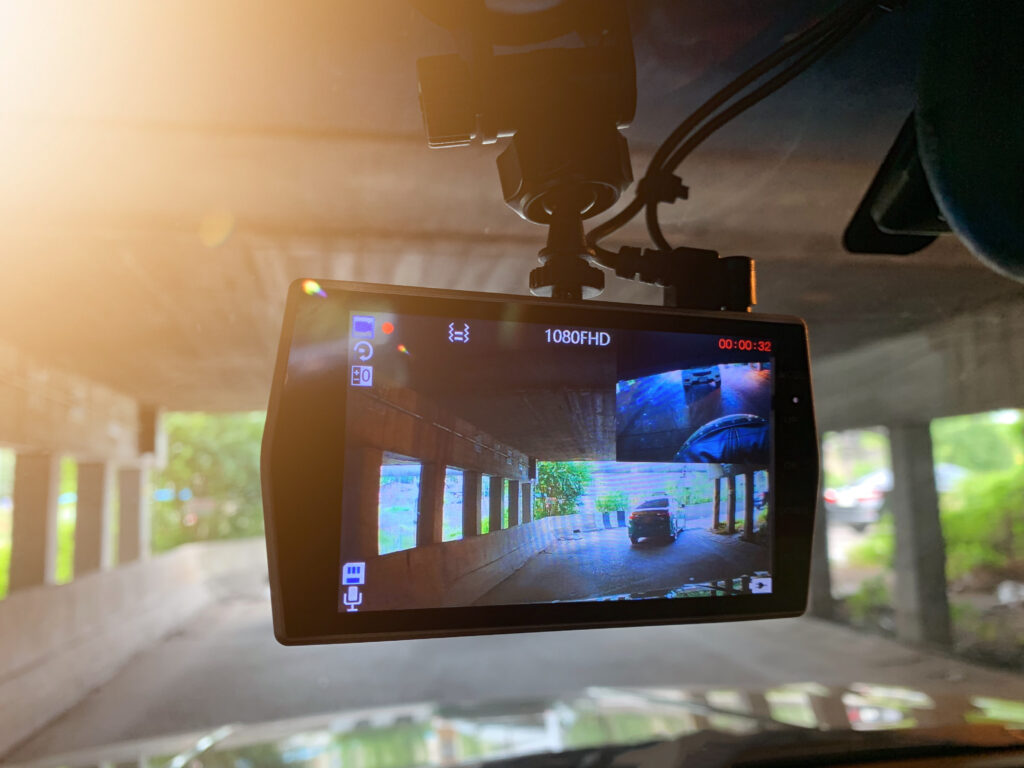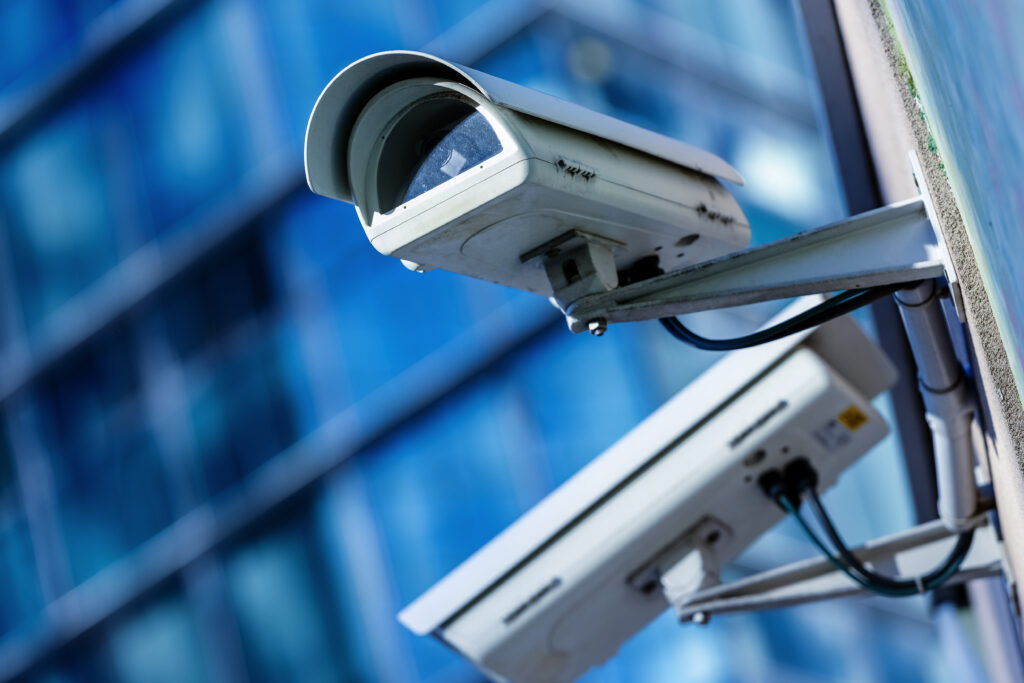It can be frustrating and annoying to learn your auto case is under surveillance by an insurance company. In some cases, it can be unsettling or even downright frightening. Unfortunately, this is a legal tactic insurers often employ. They do so to prove injury victims aren’t as badly hurt as they claim.
But you need to remember you have rights if your auto accident case is under surveillance. Insurers have limits to how far they can go when watching claimants.
An experienced Spring Hill car accident attorney can help if you feel an insurer oversteps those limits. Here’s more information about what an insurer can and can’t do and why you should contact a lawyer.
How Can This Be Legal?

Florida courts have traditionally encouraged insurance company surveillance. The first case in our state addressing the issue occurred in 1965. A plaintiff in a car accident case sued an insurer for hiring a private investigator to follow them. The plaintiff alleged the investigator acted in a way that made the general public aware they were following her.
While the trial court voted in favor of the plaintiff, an appeals court reversed that verdict, saying it was in the public interest for insurers to expose fraudulent claims. According to the court, claimants must expect an insurer to investigate once they file that claim.
Several factors contribute to the legality of an insurer placing an auto accident case under surveillance.
These factors include:
- Contractual agreements: When someone buys an insurance policy, they enter into a contractual agreement with the insurer. Most contracts typically include provisions that authorize insurers to investigate and verify the accuracy of claims submitted by policyholders. As part of this contractual relationship, insurers have the right to conduct surveillance to prevent fraud and ensure the integrity of the claims process.
- Investigative authority: Insurance companies have a legitimate interest in protecting themselves against fraudulent or exaggerated claims, as such claims can lead to financial losses and increased premiums for policyholders. To fulfill their obligation to assess claims and prevent fraud accurately, insurers have investigative authority to gather relevant information and evidence, including through surveillance activities.
- Legal precedent: Since the case mentioned above, Florida courts have generally upheld the legality of insurance company surveillance, provided that it is conducted within the bounds of the law and doesn’t infringe upon individuals’ rights to privacy or other legal protections. As long as surveillance activities comply with applicable laws and regulations, courts have recognized insurers’ rights to gather evidence to assess the validity of claims and defend against fraudulent or exaggerated demands.
- Regulatory oversight: Insurance companies are subject to regulatory oversight by government agencies responsible for ensuring compliance with laws and regulations governing the insurance industry. Regulatory authorities establish guidelines and standards for insurers’ conduct, including surveillance in claims investigations. Insurers must adhere to these regulatory requirements to maintain their licenses and operate lawfully within the insurance market.
Limits to Surveillance
There are limits to what an insurance company can do regarding an auto accident case under surveillance. If you’re in a public setting, an insurer can take videos or pictures of you. They can, for example, video or photograph you while walking your dog, going to a grocery store, or driving to the office.
However, an insurer can’t invade your privacy. They can’t snoop around your property, knock on your door under false pretenses, or act in any obtrusive, unreasonable fashion. For example, they can’t video you in your home or a public restroom. Here’s a look at some of the limits insurers must follow:
Legal Constraints
Surveillance activities must comply with laws and regulations governing privacy, trespassing, and surveillance practices. Insurance investigators must operate within the bounds of the law, obtaining necessary permits and adhering to legal procedures when conducting surveillance activities.
Prohibited Tactics
Investigators aren’t allowed to harass, intimidate, or deceive you in any way when your auto accident case is under surveillance. Investigators can’t engage in behavior that violates ethical standards or causes undue distress to individuals under surveillance. The court may deem evidence obtained through unlawful or unethical means inadmissible, and the insurer can face legal repercussions.
Respect for Dignity
Investigators must conduct surveillance activities with respect for the dignity and well-being of those under investigation. Insurance companies can’t demean, humiliate, or unfairly target claimants. Engaging in overly intrusive or aggressive surveillance practices can damage the reputation and credibility of the insurance company and may undermine the integrity of the legal process.
Proportionality
Surveillance efforts must be proportionate to the circumstances of the case and the nature of the injuries claimed. Insurance companies can’t engage in excessive or disproportionate surveillance that exceeds what’s reasonably necessary to assess a claim’s validity. The court may deem disproportionate surveillance tactics as harassment or intimidation and can lead to legal challenges against the insurance company.
Adherence to Ethical Standards
Insurance investigators must conduct themselves by ethical standards and professional codes of conduct. This includes maintaining honesty, integrity, and fairness in their interactions with claimants and other parties involved in the case. Investigators should accurately represent their identity and intentions when conducting surveillance.
What to Do if the Insurance Company Placed You Under Surveillance

Again, learning your auto accident case is under surveillance can be annoying, to say the least. You may get angry that the insurance company is watching you. But if this happens, respond calmly and strategically.
While being under surveillance can be unsettling, it’s important to remember your rights and take appropriate steps to protect yourself. Here are some key actions to consider if you suspect an insurance company private investigator is watching you:
Stay Calm and Observant
Try to remain calm and observant upon noticing suspicious behavior or surveillance indications. Avoid reacting impulsively or altering your behavior in response to your suspicions, as this can escalate the situation or compromise your safety.
Document Observations
Take note of any specific details related to the suspected surveillance, such as the time, location, and nature of the investigator’s activity. Document any vehicles, individuals, or unusual occurrences you observe, including license plate numbers, physical descriptions, and other relevant information.
Gather Evidence
If possible, gather evidence to support your suspicions of surveillance. Try to take photographs or videos of suspicious individuals or vehicles, keep records of any encounters or interactions related to the surveillance, and preserve any relevant physical evidence.
Talk to the Police if You Feel Threatened
If you believe the insurance company is unlawfully watching you or you feel threatened or unsafe, report the situation to the police or other relevant authorities, who can investigate and take appropriate action.
Seek Legal Advice
If you suspect an insurance company investigator overstepped their bounds, speak with an attorney. A lawyer can assess your situation, provide guidance on your rights and legal options, and work to stop any harassment immediately.
Avoid Confrontation
While it may be tempting to confront an insurance company investigator, it’s best to avoid direct confrontation. Confrontation can escalate the situation, put you in danger, and interfere with any ongoing investigations or legal proceedings.
Take Precautionary Measures
In addition to responding to suspected surveillance, consider taking precautionary measures to protect your privacy and security.
These precautions may include:
- Reviewing and updating the security settings on your computer, phone, and other devices.
- Installing surveillance cameras or other security measures at your home or workplace.
- Being cautious about sharing personal information or engaging in activities that can attract unwanted attention.
Seek Support
Dealing with suspicions of surveillance can be stressful and emotionally challenging. Don’t hesitate to seek support from trusted friends, family members, or mental health professionals who can provide emotional support and guidance during this difficult time.
How a Car Accident Attorney Can Protect You From Insurance Company Surveillance Tactics

A car accident attorney can play a critical role if your auto accident case is under surveillance. They’ll protect your rights and safeguard your interests at all times. These are just some of the ways that a skilled lawyer can help:
Legal Knowledge
Car accident attorneys have a deep knowledge of personal injury law, insurance regulations, and litigation procedures. They understand insurance companies’ tactics, including surveillance, and can anticipate and effectively respond to these strategies. Lawyers also know how to stop investigators who step over the line.
Advising on Communications
Insurance companies often use recorded statements and written communications to gather information they may use against claimants. When communicating with insurance adjusters, a car accident attorney can advise you regarding what to say and what not to say. They’ll also help ensure your statements are accurate and consistent and don’t accidentally hurt your case.
Managing Documentation
Your car accident lawyer can also help by gathering and organizing documentation related to your case. Critical documents, such as medical records, accident reports, and witness statements, can help strengthen your case and provide evidence to support your injuries and damages.
Handling Negotiations
The insurer may attempt to pressure you into accepting a low settlement offer by leveraging the threat of surveillance or other tactics. A skilled car accident attorney will advocate for you during negotiations, arguing for fair compensation based on the full extent of your injuries and losses.
Conducting Investigations
Your attorney can also conduct an independent investigation into the accident’s circumstances. They can gather evidence, interview witnesses, and assess the validity of insurance company surveillance footage. By conducting their own investigations, attorneys can uncover discrepancies or inaccuracies in the insurer’s evidence and present a stronger case on your behalf.
Challenging Surveillance Evidence
If an insurer plans to use their surveillance video against you, your lawyer can review that evidence and challenge its admissibility in court. The investigator may have unlawfully obtained the video or used it misleadingly or deceptively. Attorneys can also present counter-evidence and expert testimony to refute any allegations based on the surveillance footage.
Protecting Privacy Rights
A car accident attorney won’t stop fighting for your privacy rights. They’ll do all they can to force the insurer to conduct their surveillance in strict accordance with legal and ethical standards. They may file motions to suppress or exclude unlawfully obtained surveillance evidence and take legal action against any instances of harassment or intimidation by insurance investigators.
Providing Emotional Support
Dealing with surveillance tactics and the complexities of a legal battle can be emotionally taxing for accident victims. Car accident attorneys provide compassionate support and guidance to their clients throughout the legal process, offering reassurance and helping to alleviate stress and anxiety.

Watch Your Social Media Presence
While your auto accident case is under surveillance by an investigator, remember the insurance company is watching you in other ways. They’ll closely monitor your social media pages, looking for evidence that you’re not as badly hurt as you claim.
Never discuss the accident online. You could make a statement you think is innocent, but that may severely damage your case. Don’t post any videos or pictures the insurer can use to prove you’re inflating your injury’s severity. Also, consider changing your privacy settings so only the people you trust can see your posts.
Speak With a Car Accident Attorney Immediately
Even if your auto accident case is under surveillance, that doesn’t give an insurance investigator the right to invade your privacy or harass you in any way. If you suspect that’s happening, contact a car accident lawyer as soon as possible. They’ll take the steps necessary to put that harassment to an immediate stop.